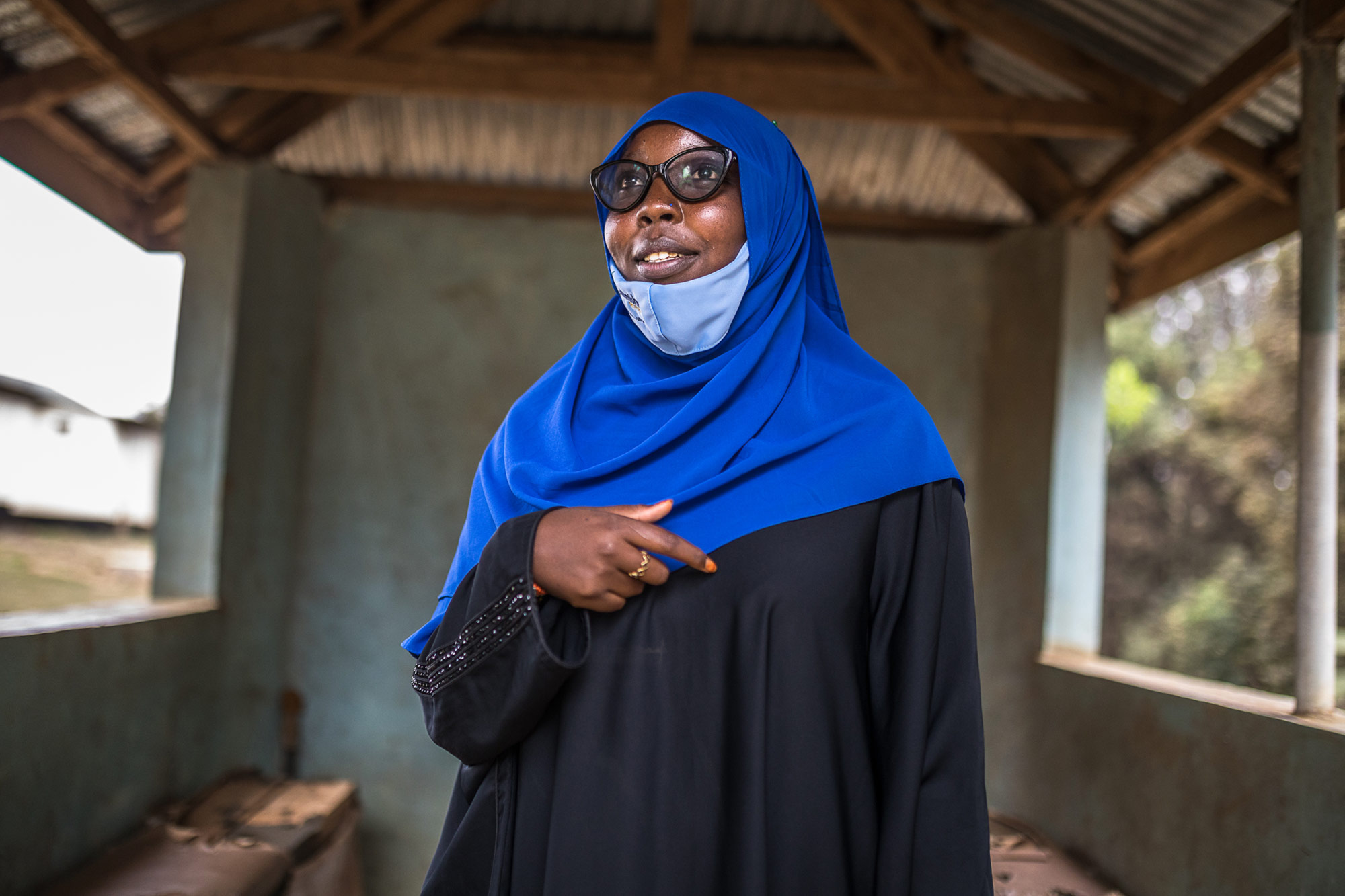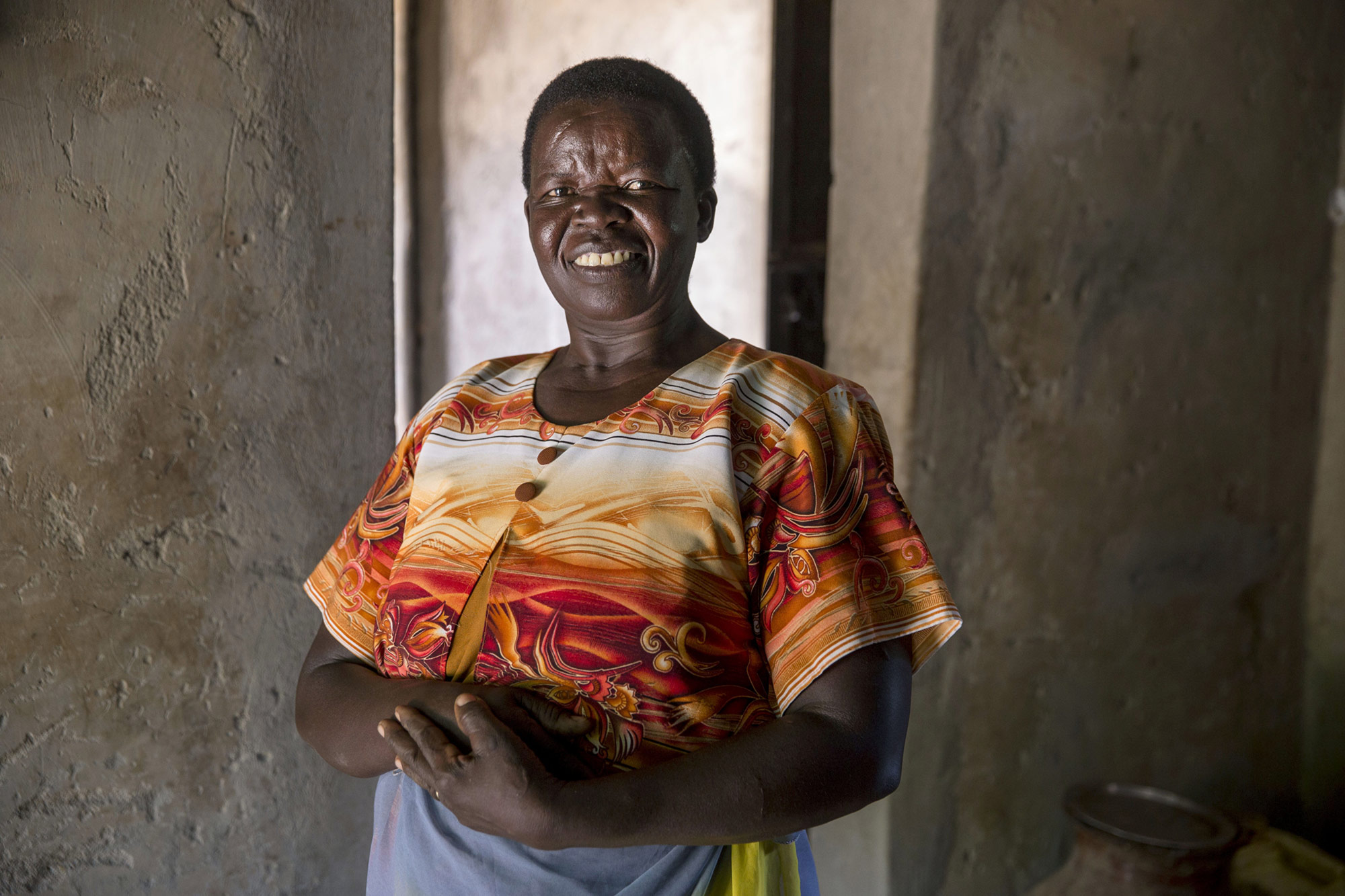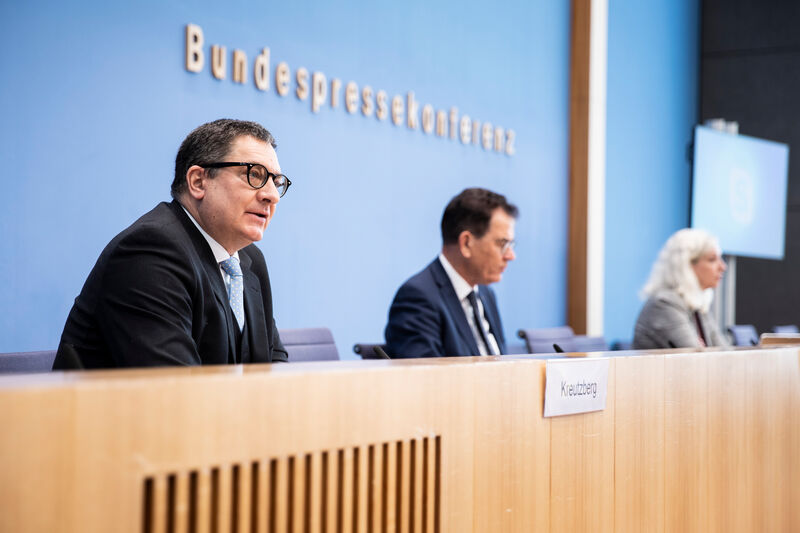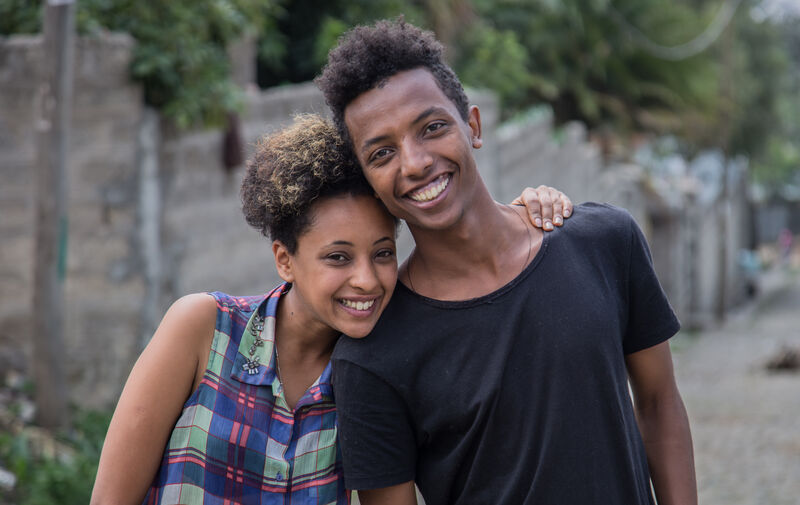
Self-determined family planning is a human right
Bodily autonomy – a woman’s right to decide when, with whom and how many children she will have – is a human right. That is why ensuring sexual and reproductive health and rights (SRHR) – including sexuality education, information and methods of contraception, care for pregnant women and newborns, and treatment and prevention of infectious diseases – is one of our key concerns. We advocate for universal health coverage (UHC), which includes quality, affordable access to appropriate health services for all.
The background
257 million women worldwide have an unmet need for modern contraceptives
One in four women are unable to decide for themselves if, when, with whom and how many children to have. They do not want to get pregnant, but have no means of contraception. According to a 2018 study by the Guttmacher Institute, 24 per cent of women of reproductive age in sub-Saharan Africa have an unmet need for modern contraception. In West Africa, the figure is 36 per cent.
121 million unintended pregnancies every year
In developing countries, around 43 per cent of all pregnancies are unintended. One of the main reasons for this is that one in four women there cannot use contraception, even if they would like to.
19 million illegal and life-threatening abortions
Complications during pregnancy and childbirth are the most common cause of death worldwide, often as a result of unsafe abortion. Every year, 19 million girls and women undergo unsafe abortions, most of them in the Global South, where 13 per cent do not survive the procedure.
13 million teenage pregnancies
Teenage pregnancies are widespread in developing countries: Almost one in five women give birth before their 18th birthday. For girls and young women, this often means the end of their schooling. In addition, labour is often prolonged, which can lead to obstetric fistula.
This is why we fight for access to modern contraception
Easy access to sexuality education and modern contraceptives has a huge impact on the lives of the women concerned, and even on entire societies.
Support us
Donate online – make a difference on the ground. Support our work and political dialogue for sexuality education and voluntary family planning with your donation. Donate now for sexual and reproductive rights – for a better and more equal future for all.
What we do on the ground
Our four keys to success:
Youth-friendly sexuality education
Talking about sexuality is taboo in many societies. Sexuality education is often non-existent, of poor quality or characterised by abstinence-only messages, which often have the opposite effect. This leads to a lot of uncertainty. Young people need this knowledge when they become sexually active – to avoid unintended pregnancies and to protect themselves from infectious diseases such as HIV. This is why DSW has set up youth clubs in East Africa, where trained peer educators take on this task. They speak not only to other young people, but also to older members of their communities.
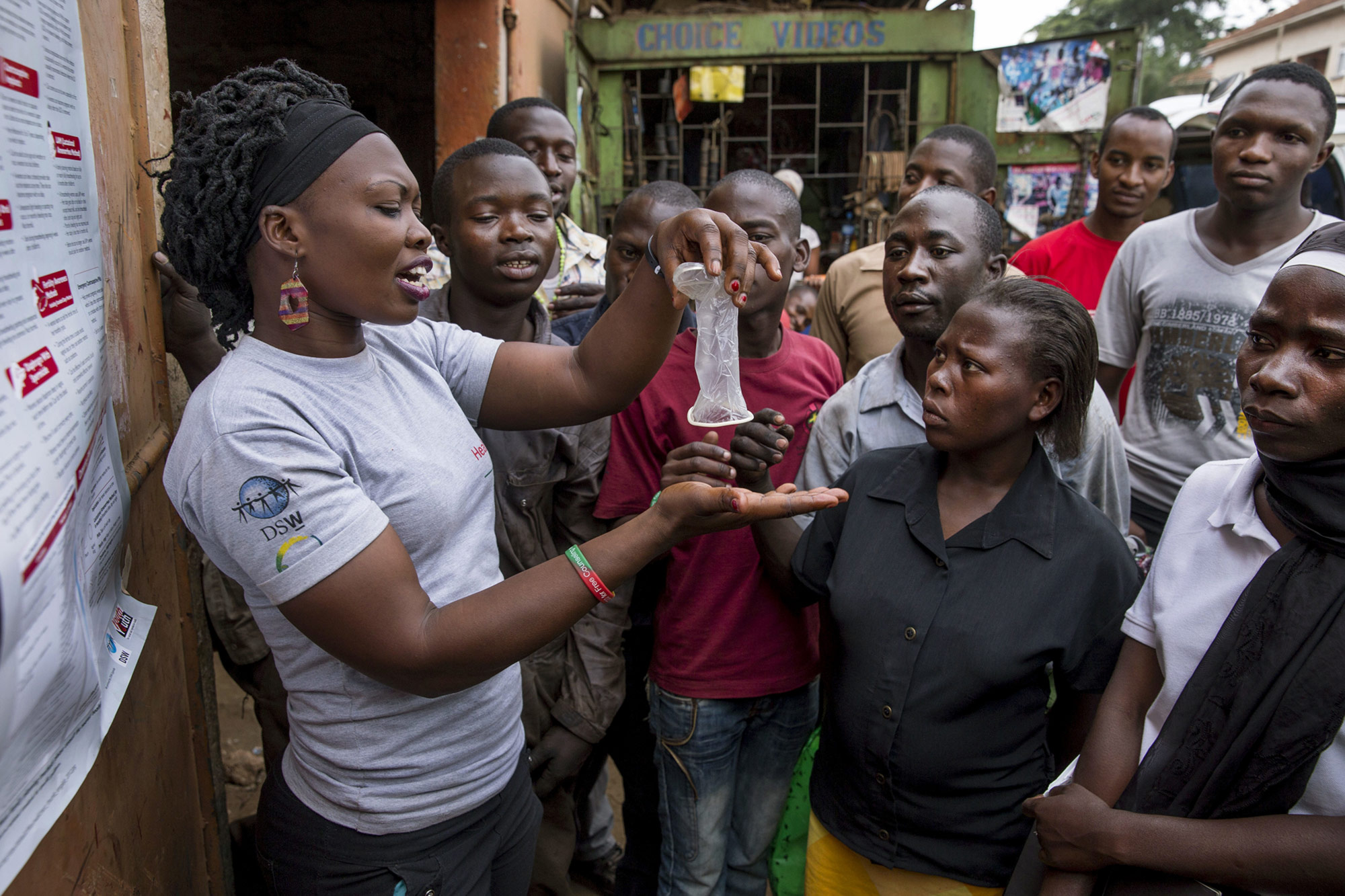
We shorten distances
The nearest health centre or family planning clinic is often a long way away for many girls and women, especially in rural areas. If the journey is long and expensive, health services are often not used. That is why we are on the road with our Youth Trucks, where our staff provide counselling and contraceptives in even the most remote areas. We also provide age-appropriate information and contraceptives in our youth clubs, which are often linked to health centres.
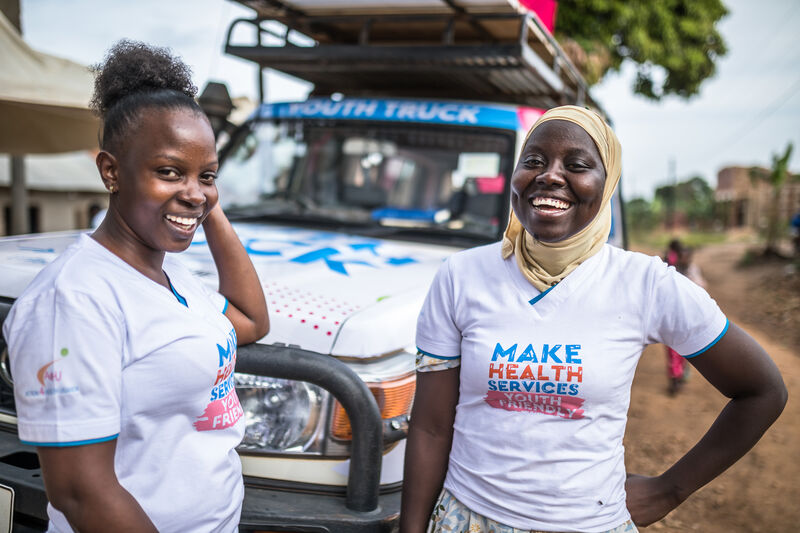
We empower women
Women are often denied the right to have a say in matters of sexuality. For men, the number of children they have is an indicator of their social status. But many fathers are also increasingly aware that it is difficult to look after a large number of children and give them a good education. Young people in particular are increasingly rejecting the old-fashioned attitudes of previous generations. At public events, young people in our youth clubs put on drama and music performances, and our staff give public talks to reach out not only to young people and women, but also to men, to show them the importance of sexuality education, family planning and equal relationships for their own well-being and that of the community.
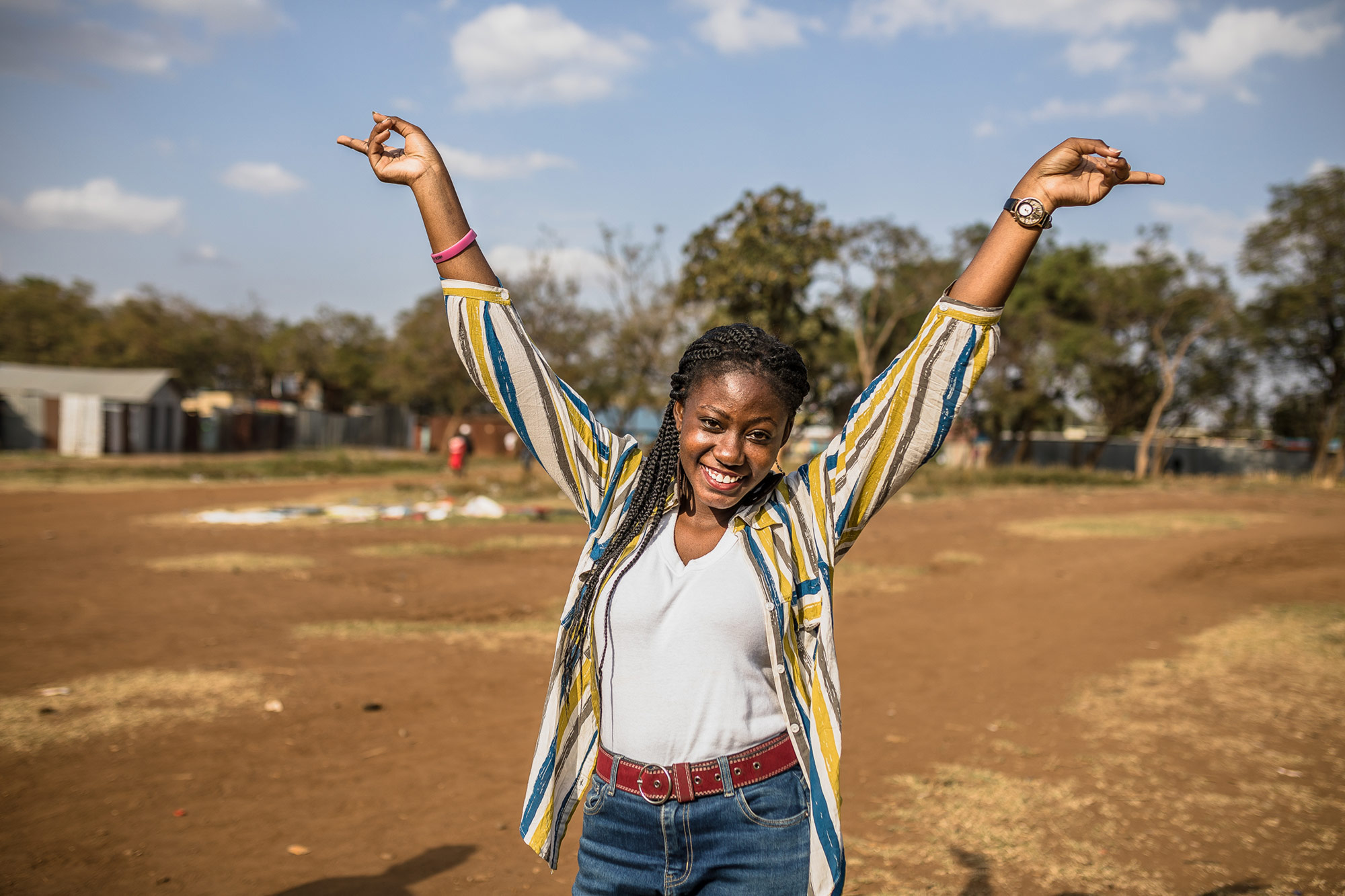
Co-operating with religions
The influence of religion is often much stronger in the Global South than the Global North. It is therefore difficult to advocate for family planning when religious groups are opposed to it. Many religious communities and organisations are now gaining a better understanding of the need for contraception. The high number of unintended pregnancies and HIV infections has made many realise that relying on old dogmas is not the way to go. Through From Faith to Action, we have created a network to help faith-based organisations and leaders address the issue of sexuality education and family planning. More than 250 organisations and networks, mostly Christian and Islamic, are involved. The aim of the project is to give couples better access to information and services on sexuality and contraception, without their faith preventing them from doing so.
